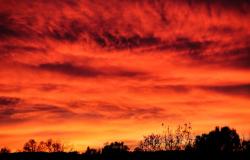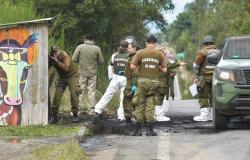The production directed by Gisela Levin and Cecilia Agüero unites folklore with rock and blues in the Hynes O’Connor room. French film series.
The Tucumán artist Leda Valladares In 2000, he published “Cantando las Roots – Coplas ancestrales del Noroeste Argentino”, the most comprehensive compilation of his decades-long work, bringing together popular music that was passed from mouth to mouth and from mother to son, without a written record.
In its pages he gathered a repertoire of box songs (bagualas, vidalas and tonadas) and anonymous century-old compositions that were sung in neighborhood patrols with guitars and drums, covering zambas, chacareras, bailecitos, huaynos, carnavalitos and other rhythms of the region.
His writings gave rise to a production whose title is the same as his book, as an inspiration and tribute, to exceed the territorial reference framework of study. “Singing the roots” is a documentary co-directed by Gisela Levin and Cecilia Aguerowhich will be screened between today and Saturday, at 8 p.m., in the Espacio Incaa in the Orestes Caviglia room (San Martín 251, ground floor of the Cultural Entity of the Province).
“Singing is the most primary means of communication we have as a species. Even before language was developed, the declaration of feelings and desires was always expressed through the singing voice. Then the music and the ways of singing were transformed, especially in the cities, through the development of various genres with new musical codes and standards. However, there are strong connections between the modern songs of large cities and ancestral music, located in deep Latin America,” is presented as a summary of the film. “It is a journey of sound discovery to learn why music has elements and forms of expression common to all people, regardless of distance or cultural differences.”
Expressly, the directors acknowledge having taken as their trigger the recording made by the compiler and musicologist Leda Valladares in the 1960s (after returning from Paris, where she performed a duet with Maria Elena Walsh) and “his subsequent link with rockers like Fito Paez, Pedro Aznar and Gustavo Ceratiamong others, in search of meeting points between the singing of the interior of the Argentine valleys and mountains and the rock and blues created in one of the rock capitals of the continent, Buenos Aires.
And they take up a phrase from Valladares: “Singing is not governing an aerial or melodic flow, it is something profuse, underground. It is falling into unknown concavities and returning to the surface with fires and metals, with peaks and plains, with sap and sand. Thus sing the abysmal throats of the Indian, the African and the Creole of any continent…”.
French film series
Also in the Hynes O’Connor room, the free French film series will return today, starting at 10 p.m., with the screening of the film “Petite nature” (“Sensible”), by Samuel Theis. The cast is made up of Aliocha Reinert, Melissa Olexa, Jade Schwartz, Ilario Gallo and Antoine Rienartz.
FRENCH CINEMA. With “Petite nature” the cycle returns with free access.
At only 10 years old, Johnny is a completely autonomous child with some responsibilities inappropriate for his young age. They live in poverty in the Lorraine neighborhood in northern France, near the city of Metz. She takes care of his younger sister, helps at home, is diligent at school and has maturely accepted the separation from his parents. Despite the limitations of the social context in which he grows up, and inspired by the academic and life lessons of a teacher, the child restlessly opens up to the secrets and vicissitudes of the adult world, which he views without prejudice.






